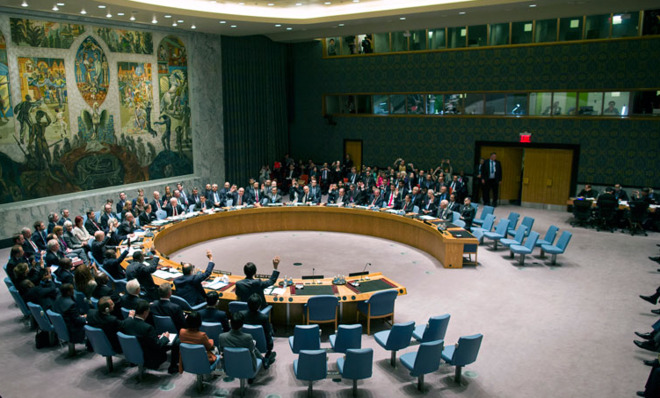Why Saudi Arabia will regret boycotting the U.N. Security Council
If the kingdom wants to play the global game, it needs a seat at the table

A free daily email with the biggest news stories of the day – and the best features from TheWeek.com
You are now subscribed
Your newsletter sign-up was successful
Saudi Arabia desperately wants to be seen as a major world player. But it doesn't yet know how to act like one.
The Arab state has taken the unprecedented step of refusing to take its seat on the United Nations Security Council, despite actively campaigning for that position for years. Saudi Arabia was one of five nations elected to serve a two-year stint on the body, which is made up of 10 rotating seats and five permanent members — the U.S., Britain, France, China, and Russia — who have veto powers.
In a statement, the Saudi Foreign Ministry said it had "no other option" but to turn down its seat as "work mechanisms and double-standards" had stopped the Security Council "from carrying out its duties and assuming its responsibilities in keeping world peace." That was an apparent dig at China and Russia, which have repeatedly blocked the council from getting tough with Syrian President Bashar al-Assad.
The Week
Escape your echo chamber. Get the facts behind the news, plus analysis from multiple perspectives.

Sign up for The Week's Free Newsletters
From our morning news briefing to a weekly Good News Newsletter, get the best of The Week delivered directly to your inbox.
From our morning news briefing to a weekly Good News Newsletter, get the best of The Week delivered directly to your inbox.
Saudi Arabia sees itself as the heart of the Sunni Muslim world and has consistently backed U.S. and French calls to intervene in Syria on behalf of the mostly Sunni Muslim rebels. The Saudis consider the Assad regime — largely made up of members of the country's Alawite minority, an offshoot of Shia Islam — a threat to regional stability.
"In this instance, the Saudis may have stumbled upon a sort of 'reverse prestige' strategy," said Dashiell Bennett at The Atlantic Wire, "where the only thing more impressive than sitting at the cool kids' table is not wanting to sit at the cool kids' table." By refusing to join the council, the Saudis seemingly hope they will spur its reform and eventually reduce the veto power of the five permanent members.
But history shows that "the Saudis may come to regret this maneuver," Richard Gowan, a U.N. expert at New York University, told Foreign Policy. In 1950, the Soviet Union boycotted the Security Council over its failure to accept the communist People's Republic of China into the organization. The move was a disaster. When the matter of North Korea's invasion of South Korea was brought before the Security Council, the body voted to authorize a U.S.-led military intervention in the Korean peninsula — a decision that the Soviets would have been able to veto if they had been present in the room.
Unlike the Russians, the Saudis would never have been able to use a veto in the Security Council. But they could have taken part in high-level talks on the Syrian civil war, and potentially on future negotiations aimed at relaxing sanctions on their arch-rival, Iran.
A free daily email with the biggest news stories of the day – and the best features from TheWeek.com
This is "a baffling case of shooting oneself in the foot," Edward Luck, a historian at the University of San Diego, told Foreign Policy. "Apparently, Riyadh failed to learn the lesson of Moscow's boycott: You can't win if you refuse to play the game."
Theunis Bates is a senior editor at The Week's print edition. He has previously worked for Time, Fast Company, AOL News and Playboy.